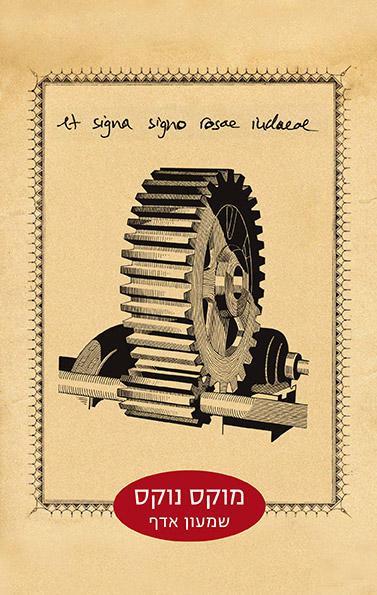
Mox Nox
A boy from a small town in southern Israel spends the summer working at a kibbutz factory. We see his relationship with two other boys working there, and with the factory secretary, a single woman with whom his father – an angry, Orthodox man – may have had an affair. At the same time, there is another story, told by the narrator as an adult. By now he is a successful author who runs writing workshops for well-off women and is involved in a relationship with an older woman that tests the limits of intimacy and his certainty about the world. As the two narratives interweave, going backwards and forward in time, Adaf creates the personality of a young artist confronting the residue of childhood suffering and the inscrutable traditions bequeathed to him by his despotic father as a sealed-off way of life. He decides to break away entirely and to adopt a different lifestyle.
In this novel, Adaf deals with major issues in contemporary Israeli experience: secularism and religion, outlying areas versus the center of the country, authenticity and puritanism versus the phony and debauched. And as always with Shimon Adaf, the fantastic permeates reality and undermines it
Mox Nox is the second part of the Rose of Judea trilogy, but it also stands as an independent novel. It won the Sapir Prize for Literature in 2012.

-
“There is no argument about Adaf’s talent, his sensitivity, or his ability to create a world that is simultaneously both material and spiritual, concrete and poetic.”
-
“Mox Nox sees Shimon Adaf at his peak, with multiple shades and unexpected connections between the daily and the sublime, familiar human molds into which alien elements are poured… One can deconstruct the book into fragments and rebuild it; it can [also] be enjoyed in a single piece as a poignant Israeli coming of age novel. Either way, Mox Nox reaches new heights in the phenomenal rise of one of the most creative, most brilliant and most challenging writers in Israel today.”
